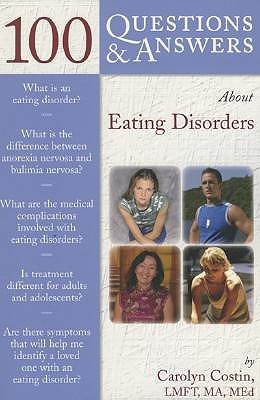What do you think?
Rate this book


221 pages, Paperback
First published April 18, 2007
1. What is an eating disorder?
2. Is obesity an eating disorder?
3. Have eating disorders been around historically and for how long?
4. When does disordered eating become an eating disorder?
5. Is it true that exercise can be a form of purging?
6. I had an eating disorder. What are the chances my daughter will develop one?
7. My friend is in a support group and I am in a therapy group. What is the difference?
8. My loved one is in a treatment program. Should I be involved?
9. When someone has an eating disorder, are there any DOs or DON’Ts for their loved ones that are helpful?
10. How long does treatment take?
11. Are there certain phases of the recovery process?
12. Can an eating disorder be prevented?